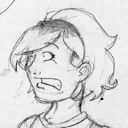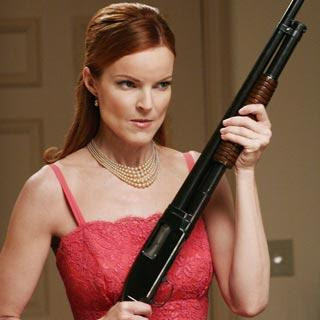I am a bleeding-heart liberal.
Therefore, for my daily news-drip I read the Guardian. If I’m really going for it,
the Independent. Essentially, I enjoy
living my life trying to work out the ratio of dead polar bears to pilot lights
I accidentally leave on during the day. What can I say… the guilt keeps me
motivated and ensures I donate a suitable amount of time and money to London Zoo
in return for penguin bothering and the hope that their conservation efforts
will negate my accidental anti-polar bear actions.
No, really. That's me literally bothering a penguin. For the polar bears
What I am driving at is that,
being a lefty, I tend to choose a paper which angles the news towards my own
world view. If a government body publishes statistics on, say, immigration, (or
polar bear death rates), the papers I read are likely to interpret those
statistics in a different way to the right-biased papers. I am very much complicit in that bias. I do attempt to balance this
occasionally by reading equivalent stories in the Telegraph or, if I’m in the mood for some ragey hysteria mixed with
sexy side-panel side-boob, the Daily Mail.
... Stop the press. American owns gun. Bear shits in wood.
But, on the whole I choose to form my opinions based on comment from people who
broadly share my world view, and I don’t see anything wrong with that – as long
as I interpret all the ‘facts’ presented with that in mind.
As every year 7 English student
kno, it is important to set any work of writing within the context of who wrote
it and why.
Any fule kno
This applies to works of
fiction, non-fiction and daily newspapers alike. Sometimes, someone will write
a book about cheese because, gosh darnit, she knows a metric shit-tonne about
cheese. But, more often than not, someone
will usually be trying to sell you something.
Not that this is a bad thing. I
recently read a biography of Unity Mitford written by someone who clearly has a
bugbear the size of Wales when it comes to the Mitford sisters. Now, to be
clear, they were a family with some pretty hateful ideologies. All but one of
the ‘Mitford Girls’ were paid up members of the British Union of Fascists. One
of them (the titular Unity) was on close personal terms with old one-ball
himself.
Bff
Far too many biographers of the family prefer to smooth over this
rather significant rumple in their reputations and focus on just how witty they were instead.
But our own
dear narrator takes things rather too far in the other direction. Rather than
stick to the facts, presenting a balanced view of the family’s notoriety and
troubling links with the Third Reich, he goes absolutely mental and starts insinuating satanic SS orgies, incest, and suicide
pacts with the Führer into the text. Of supporting evidence, there is very
little other than ‘my Granny said’. As a useful text for scholars of mid-20th
Century aristocracy, therefore, the book is absolutely worthless. As a
hilariously over-the-top bitchathon featuring a family who have done very well
indeed out of our nation’s rose tinted view of recent history, it succeeds
wonderfully. In context.
This is Evelyn Waugh. Who, according to our dear narrator, wrote some or all of Nancy Mitford's early novels. Because why not?
When it comes to works of fiction,
things become more complicated, however. Unlike non-fiction where; if the lack
of references don’t tip you off to unnecessary bias, the screaming insanity of
the content may just do – reading a novel requires the suspension of disbelief.
Therefore it is harder to get a handle on just what the author’s intentions may
be. I would argue that you really have to pick your battles when it comes to
using fiction as a form of ethical persuasion.
There are two ways in which this
can be achieved.
The Animal Farm method:
1) Take one country under the fist of
a brutal dictatorship.
2) Analyse the history and social
conventions of that country.
3) Analyse the regime and its systems
of control and submission.
4) Get angry.
5) Write a searingly critical
masterpiece in the guise of a story about pigs.
6) Ignore criticism and insist that
book really is about evil pigs.
7)Break every horse-loving English
student’s heart for the next 200 years.
The Atlas Shrugged method:
1) Think about Socialism.
2) Get angry.
3) Think about how great Capitalism
is.
4) Have to have a pause, a cigarette
and a bit of a breather.
5) Aim to persuade the world that
selfishness is great.
6) Write a bloody awful book about
it.
7) Garner praise and recognition
across the world.
8) Boyfriend dumps you for younger
woman. Lose your fucking mind because how
dare he be so selfish?!?
9) Still garner praise and
recognition, even after every single bloody economic assertion has been
completely disproved by history.
10) Drive Bookseller bonkers when
repeatedly told how great it is.
Now, in both those cases, the narratives
can be read (with a bit of effort, on Atlas
Shrugged’s part) as having very little to nothing to do with their ‘actual’
subjects. It is very easy to read Animal
Farm as, literally, a book about Bacon with Big Ideas and possible to read Atlas Shrugged about... Whatever it’s
about (railroads, industrialists, taxes… I never actually managed to finish
it.) Therefore, without being explicitly overt or covert in their intentions,
the books work as pieces of fiction written with a political agenda in mind.
Not all agenda books work as well.
An example:
Water for Elephants: An entertaining and pretty inoffensive
romantic melodrama. With a very unsubtle animal-rights agenda crowbarred in.
Here’s my problem with Water for Elephants: I HATE ELEPHANTS. No.I don’t. I am very sympathetic to the
animal-rights cause. I just don’t want it crowbarred into fiction. Badly. There’s
no subtlety to this. The grand romantic plot is pushed into sub-plot status in
order to make way for the book’s raison-d’etre. Elephants.
Seriously. Dumbo had the whole issue covered.
Gosh… those poor elephants. The
book is so obviously campaigning on their behalf that every carny who mistreats
a pachyderm is practically given a cackle and twiddly moustache. The anger is
palpable. But wait… the book is set IN THE 1930s.
Gonna 'splode me a heffalump
Here the book falters in its
quest. The author wants to highlight the mistreatment of circus animals; which
is certainly an issue that lingers today. But in setting the book in the 1930s,
she removes the immediacy of its message. By making the abusers seem positively
evil, she fails to acknowledge the cultural norms of the decade – which were
less than enlightened. Rather than diabolical, the mistreatment of animals in
the 1930s was horrifically mundane. Had she portrayed it as such (and I’m still
not sure that a romantic novel was really the best setting in the first place),
the reader may have been more affected by the continued existence of animal
circuses, when so much else in the world of animals rights has moved forward.
Light romantic fiction is,
apparently, riddled with such cases of activism. In some cases activism of such
inanity it makes me angry. A colleague was recently looking up novels to gift
to her newly pregnant sister. One recommendations site she found
(Mumsworld.vom, thesocietyforarmouredprams.ram, smuglyfertile.grin or something
similar) contained lots of mentions of such novels. ‘Contains positive mentions
of breastfeeding’, ‘has a pro-ATP Parenting message’ etc.
If you could stop running me down for occupying the same mile of pavement as you... that'd be great.
Dear God but if I ever resort to
reading chicklit to justify my parenting choices in the future, please take my
child away. YOU ARE SEEKING POSITIVE REINFORCEMENT FROM FICTION. FICTION!
Fiction is a powerful tool. It can
be used to illustrate examples, conduct thought experiments, horrify, delight
and persuade. But there should, in my opinion, be two rules:
1) Fiction should never never be read purely to back up one’s
own opinions. Please leave that to non-fiction, which at least has to show its
sources.
Or is at least so insane as to give me a good giggle
2) If you’re passionate about
something, and you want to write a book about it, make sure the narrative fits the message from the outset. Please. The world isn't ready for horror books with pro-beekeeping messages thrown in. Which, of course, is the next obvious step.
...Although....































































